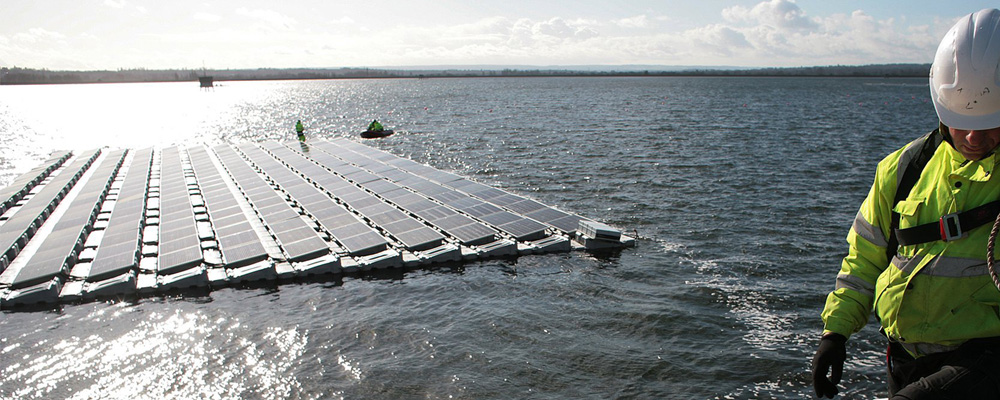Are engineers installing floating solar farms? Absolutely.
In fact, there are already several floating solar farms in operation. In March, the largest floating solar farm in the world will be completed in the UK. This 23,000 solar panel project will generate enough power to run local water treatment plants.
Why do engineers put solar panels on water? The answer is that the panels can occupy unused space on top of the water rather than take up valuable land. In general, it is more economical to build solar farms on land than in the water. Installing a solar farm on water is a great option for areas that do not have much unused land.
What about the ecological impacts? Floating solar farms shade the water beneath it, and this means that fish may not like getting too close to the installation. The floating panels also discourages algae growth, and this may affect the fish species that depend on algae as a food source.
One important side benefit of floating a solar farm is that it reduces the amount of water which evaporates – and this is good a good thing for water reservoirs.

With 45degree of NOCT we will have some large evaporation of the water. Secondly the water temperature will rise accordingly and if it is a marine site it will change the ecological cycle.